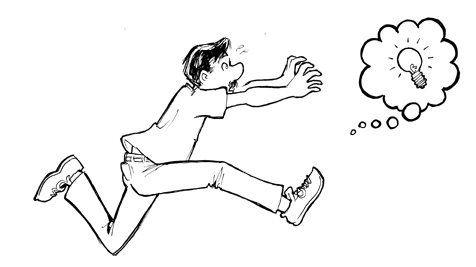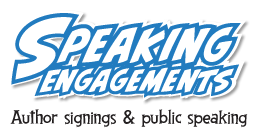Whether you’re trying to write a more compelling story — or trying to punch-up a joke — elevating the conflict is often the key to success. Conflict is at the heart of both comedy and drama. But conflict alone doesn’t create the narrative tension that is so vital in good storytelling. So let’s take a moment to examine narrative tension in detail.
Conflict
Conflict is when characters are placed in opposition with other characters or with their circumstances. There are several types of conflict, including…
- Character vs. Self
- Character vs. Another Character
- Character vs. Society
- Character vs. Nature
- Character vs. Machine
- Charactern vs. Fate
- Character vs. Supernatural
However, conflict alone does not create narrative tension — and narrative tension doesn’t always arise from conflict. Narrative tension also incorporates an element of suspense — and uncertainty as to the outcome of the conflict.
Narrative tension
Narrative tension can be broken down into three components:
- Anticipation
- Uncertainty
- Investment
There are different ways to create each ingredient, and the way you mix them together will determine the type of the narrative tension in your writing. Think of it like a recipe. Adding different types of seasoning and changing up your ingredients can make the difference between a soup, a stew, and a gumbo.
Anticipation
To get a reader hooked on a story, you have to make them believe there’s a good reason to turn the page. That’s not going to happen with a wall of world-building text. It’s going to happen by setting up questions or uncertain outcomes. It doesn’t matter if the reader can guess the outcome right now. All that matters is if they’re invested enough to make a guess in the first place!
Anticipation is all about possibilities. As a writer, you want to set up a compelling situation, with several possibilities — including at least one that’s very unfavorable from the standpoint of the protagonist! You can do this directly — by simply stating the undesirable outcome — or you can hint at it. Foreshadowing works very well here, too.
Uncertainty
Now that your reader is anticipating a potential outcome, you introduce doubt. For example, you might introduce further facts that make the initial situation much more complicated than you originally implied. Or something that seemed like a certainty is now removed from the available options.
As a writer, you’re setting a trap. You’ve set up a situation — and encouraged the reader to guess what happens next — you change the rules! Or you reveal a few things you kept hidden. Or you simple upturn the apple cart and throw everything into chaos. The uncertainty can be internal — as in, an internal monologue — or it can be external — like a new event introduced into the situation. If your reader’s interest had been piqued before, it’s intensified now.
Investment
A combination of anticipation and uncertainty may mildly arouse the reader’s curiosity, but to create strong narrative tension, the reader must also feel invested in the outcome.
The best way to instill this investment is to make the reader identify with the protagonist. Once the reader makes an emotion connection with the protagonist, it will matter what happens next. There are other ways to invest the reader, too, like:
- Intellectual or emotional. A mystery is a puzzle for the reader to try to solve. This isn’t so much emotional as it is analytical.
- Positive or negative. A revenge story is based on the reader’s desire to see bad things happen to a hated character, rather than a desire to see good things happen to a beloved one.
- Conceptual. A story about a civil uprising in a society may have unlikeable characters on both sides, but the idea behind the uprising itself can be the central engine for reader investment.
As soon as your reader wants a specific outcome, they are invested.
Low tension
Look out for these tell-tale signs of low tension:
- Meaningless chit-chat between characters
- Inner dialogue that doesn’t drive the narrative or intensify conflict
- Creating an easy solution for your protagonist
- Info dumps / massive backstory



















